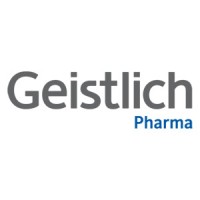PRINCETON, N.J.– The Geistlich Medical business unit of Geistlich Pharma AG, a family owned, Swiss-based global leader in regenerative solutions, is proud to announce the results from their clinical study of the Geistlich Derma-Gide® Advanced Wound Matrix. The study, “Use of a Purified Reconstituted Bilayer Matrix (PRBM) in the Management of Chronic Diabetic Foot Ulcers Improves Patient Outcomes vs Standard of Care – Results of a Prospective Randomized Controlled Multi-Center Clinical Trial,” was peer-reviewed and published in the International Wound Journal – Wiley Online Library.
The paper was authored by David G. Armstrong, DPM, MD, PhD; Dennis P. Orgill, MD, PhD; Robert D. Galiano, MD; Paul M. Glat, MD; Jarrod P. Kaufman, MD; Marissa J. Carter, MA, PhD; Lawrence A. DiDomenico, DPM; and Charles M. Zelen, DPM, FACFAS. The paper is now available in the Wiley Online Library at https://onlinelibrary.wiley.com/doi/full/10.1111/iwj.13715.
Overview & Highlights of the Study
In a 40-patient, prospective, randomized, controlled multicenter clinical trial comparing a purified reconstituted bilayer matrix (PRBM, Geistlich Derma-Gide) vs. Standard of Care (SOC – collagen alginate dressing), Geistlich Derma-Gide was found to be superior relative to healing rates and time to wound closure.
Reported outcomes at 12 weeks were as follows:
- 85% (intent to treat; p-value 0,0004 [N = 40]) and 94% (per protocol; p-value 0.00008 [N = 37]) healing rates vs 30% for SOC
- Mean healing time of 36.8 days for Geistlich Derma-Gide vs 66.5 days for SOC
- Mean cost of healing of $1,731 for Geistlich Derma-Gide
The researchers concluded that the application of Geistlich Derma-Gide significantly accelerated chronic wound healing with a favorable cost to closure. The product was safe, convenient and easily handled. The outcomes also demonstrated some of the lowest published graft cost to closure as compared to any commercially available advanced skin substitute.
“This novel bi-layer advanced wound matrix has proven to be a valuable addition to our armamentarium when treating difficult-to-heal diabetic foot ulcers,” states David G. Armstrong, DPM, MD, PhD, Professor of Surgery at Keck School of Medicine at University of Southern California and principal investigator of the study. “We observed in our initial 10-patient retrospective review of Geistlich Derma-Gide that there appeared to be promise in the clinical performance of the product. We are pleased to report that those initial findings remained consistent in this larger, prospective randomized trial.”


